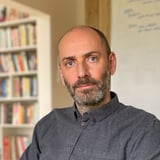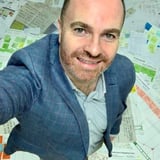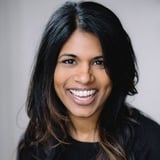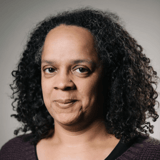Summary
The design industry’s relationship to the field of business has long been established and continues to become further entangled each year. But designers aren’t just satisfied with only disrupting the business sector—they’re keen to disrupt the social sector too. Unfortunately, the weaknesses baked into the discipline of design (that have been present from the start) are readily exposed when designers enter complex social issues and treat them like any other human-centered innovation challenge. The lack of a moral framework, let alone a set of ethical guidelines, put designers at great risk of doing more harm than good.
Key Insights
-
•
Human-centered design can be weaponized to exploit users, as seen in the founding of Jewel Labs.
-
•
The design industry largely relies on individual designers’ personal ethics (BYOE), lacking a shared ethical framework.
-
•
Dieter Rams’ principles of good design focus on function and honesty but do not prevent ethically harmful products.
-
•
Power asymmetry is embedded in most design projects, with designers often lacking influence compared to powerful clients.
-
•
Greater Good Studio practices 'breaking up' with projects to avoid causing harm, a rare and vital practice in the industry.
-
•
Saying no to projects requires cultivation and support, as designers are typically trained to always say yes.
-
•
Design primarily serves to build capital and provide comfort, which attracts powerful stakeholders and can accelerate harm.
-
•
There is widespread unacknowledged workplace trauma and ethical conflict within design teams.
-
•
An ethical design framework could include codes of ethics, accreditation, licensing, and community feedback mechanisms.
-
•
The design industry risks bifurcation into accountable designers serving demanding clients and an unaccountable majority.
Notable Quotes
"Good design is honest and yes, the Jewel e-cigarette will honestly kill you."
"What is design’s relationship to power and privilege? Which humans do we center when we say human-centered design?"
"Power is the ability to change another person’s reality."
"The most common way people give up their power is by thinking they don’t have any."
"We mostly have something called a BYOE scenario or bring your own ethics."
"Not every project needs to be responded to; not every RFP needs a proposal."
"Every major brand has a dark side brought to you by design on purpose, 40 hours a week."
"Design helps build capital and seek comfort, which draws in the most powerful."
"Why do designers decide how to design this? How do we wean design's addiction from whiteness?"
"Saying no shouldn’t be about being difficult but about accountability beyond any one person."
Or choose a question:
















More Videos

"When you design for the edges, you make things better, more fluid, more customizable for everyone."
Sam ProulxOnline Shopping: Designing an Accessible Experience
June 7, 2023

"Evaluations and promotions can be nebulous and awkward, especially in collaborative design work."
Ignacio MartinezFair and Effective Designer Evaluation
September 25, 2024

"Embedding designers gave them deep expertise but siloed goals prevented consistent cross-product experiences."
Sarah Kinkade Mariana Ortiz-ReyesDesign Management Models in the Face of Transformation
June 8, 2022

"Belonging means understanding the shape, size, and cause of your community and your unique purpose in it."
Daniel GloydWarming the User Experience: Lessons from America's first and most radical human-centered designers
May 9, 2024

"Traditional metrics create a dangerous illusion where we optimize for what we can measure, not what people actually need."
Patrick BoehlerFishing for Real Needs: Reimagining Journalism Needs with AI
June 10, 2025

"Many customers struggle to get anyone to listen to actual insights because of the volume and complexity of raw video data."
Andy Barraclough Betsy NelsonFrom Costly Complexity to Efficient Insights: Why UX Teams Are Switching To Voxpopme
September 23, 2024

"Technology moves faster than policymaking — that’s the pacing problem we need to address."
Alexandra SchmidtWhy Ethics Can't Save Tech
November 18, 2022

"We have to move beyond linear solutions. Complex systems require us to explore our way through problems."
Louis RosenfeldDiscussion: What Operations can teach DesignOps
November 6, 2017

"Design systems are the language of implementation; they allow us to communicate ideas in a common format and process."
Mitchell BernsteinOrganizing Chaos: How IBM is Defining Design Systems with Sketch for an Ever-Changing AI Landscape
September 29, 2021
Latest Books All books
Dig deeper with the Rosenbot
Why does Mary Lynn believe imperfection in design and content is becoming more valued today?
What are de-risking sessions in service design and how do they help prepare stakeholders for co-creation?
How can public sector funders shift their innovation investments to align better with strategic priorities?
















